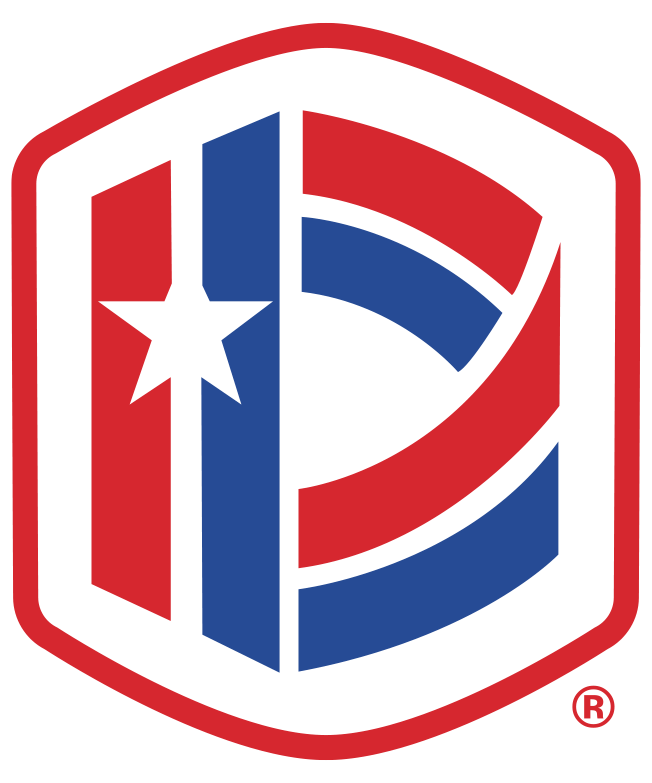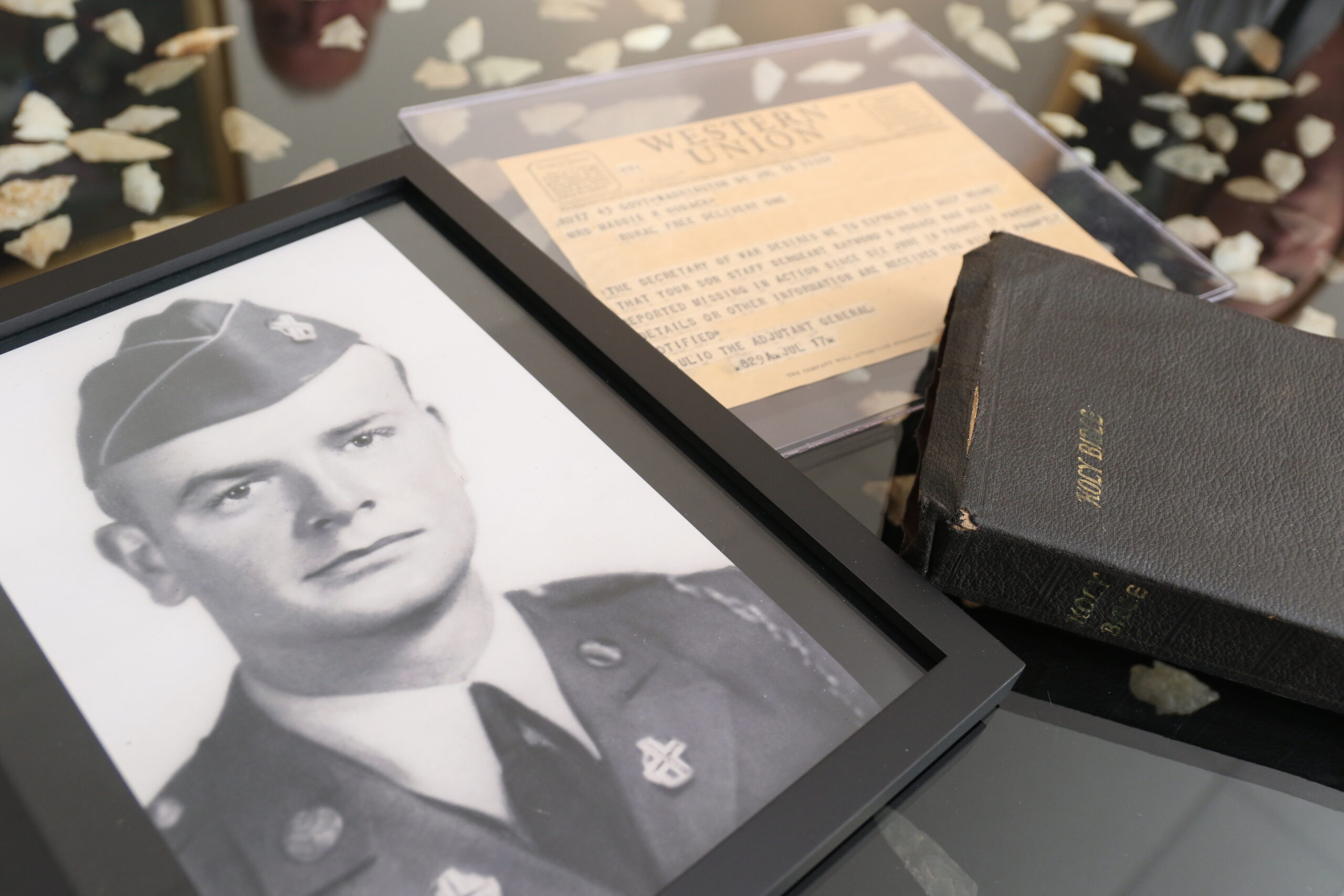
27 Nov Famed Bible Recovered from Omaha Beach Now in Memorial Collection
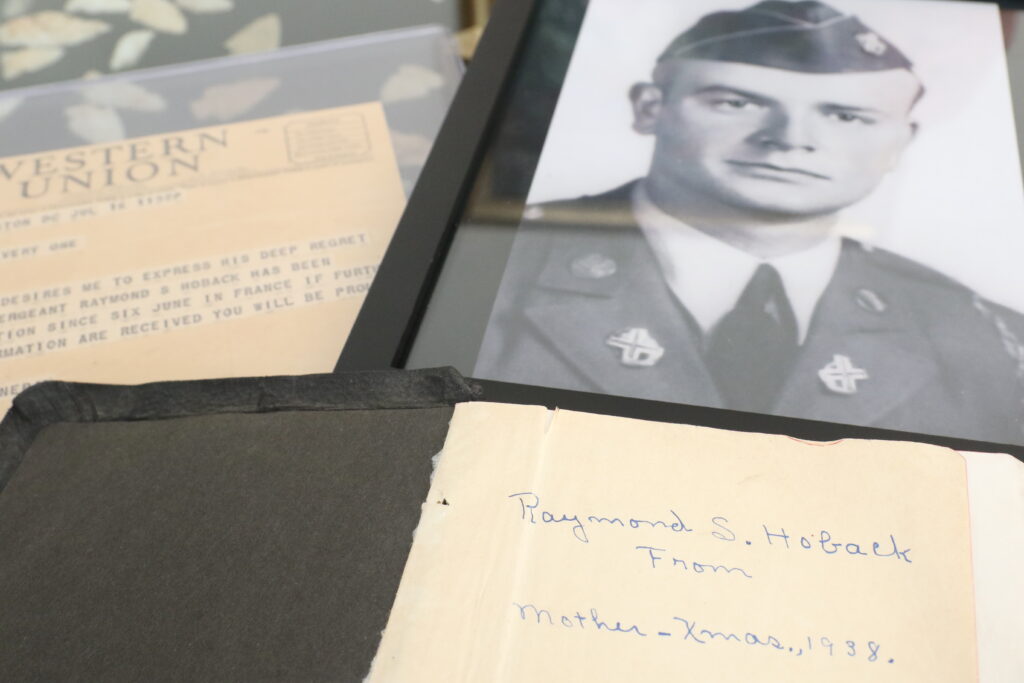
With great honor and gratitude, the National D-Day Memorial Foundation announces the Bible carried by Raymond Hoback, found by a soldier on Omaha Beach on June 7, 1944, is now part of the Memorial’s permanent artifact collection. Lucille Hoback Boggess, who lost brothers Raymond and Bedford on D-Day, presented the cherished family heirloom to Foundation President & CEO April Cheek-Messier during a private meeting earlier this month.
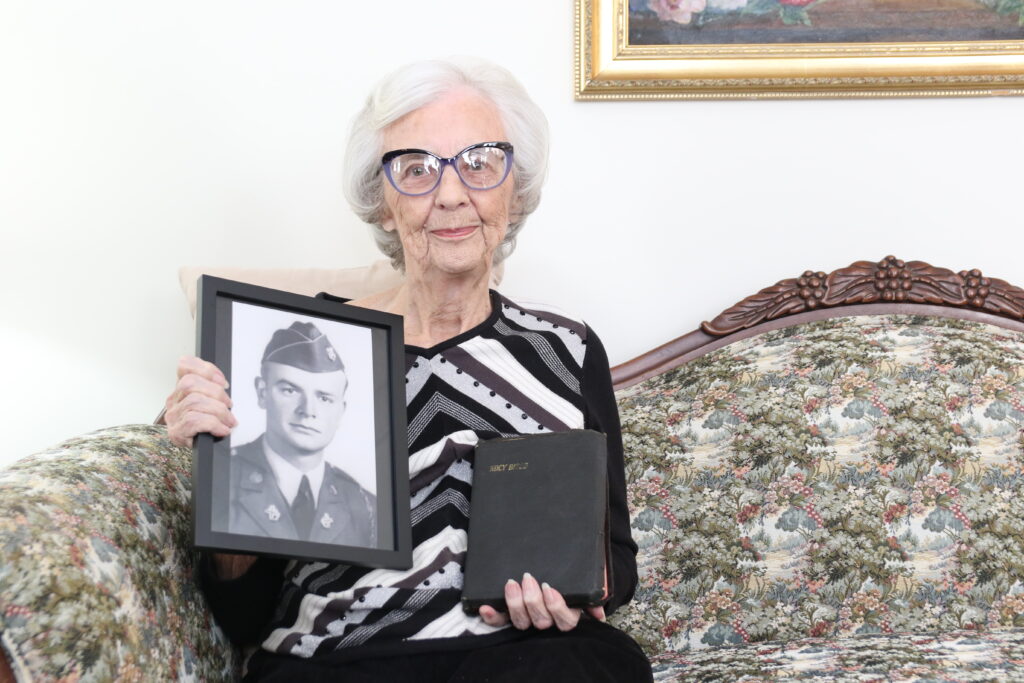
Lucille Hoback Boggess holding a photo of her brother Raymond and the Bible he carried on D-Day
“We are so honored that the family has decided to entrust us with this precious gift,” said April Cheek-Messier, president of the National D-Day Memorial Foundation. “I have known Lucille all my life, and the story of Raymond’s Bible still brings tears to my eyes. It is a story that resonates with our visitors who often become emotional when they hear about this unthinkable loss and a mother and father who clung to their last tangible connection to her son – the very Bible they had given him.”
The events of D-Day, June 6, 1944, devastated the small community of Bedford, Virginia. Nineteen local men of Company A, 116th Regiment, 29th Division died on Omaha Beach along with another man from Company F, all likely killed in the first hour of the invasion of Normandy. Among those twenty men were two brothers, Bedford and Raymond Hoback.
Nearly six weeks after D-Day, on Sunday, July 16, the parents and siblings of the Hoback brothers were preparing for church when they heard a knock at the door. The local sheriff had come to deliver a telegram to John and Macie Hoback informing them their son Bedford had been killed in action. The anguished family received a second telegram the following day, with the news Raymond was missing in action. The Army would eventually confirm Raymond’s death, although his body has not been recovered and identified to this day.
In early August 1944, John and Macie Hoback received a package from a West Virginia soldier, Harold Crayton of the 453rd Amphibian Truck Company. Inside was the black leatherbound Bible Mrs. Hoback gave Raymond for Christmas in 1938. Crayton explained in a letter he picked up the Bible from the beach to keep it safe. Crayton addressed the package to Mr. & Mrs. J.S. Hoback Bedford, Va., after finding their names and address written on the family register page.
Crayton returned the Bible, “…knowing you no doubt would want the book returned… I am sending it knowing that most Bibles are a book to be cherished.” His letter expressed sympathy and hopefulness, “You have by now received a letter from your son saying he is well. I sincerely hope so.” Unaware of the fate of Raymond, still less could Crayton have known there were two brothers of the Hoback family to fall that day.
In the decades following D-Day, the story of Raymond Hoback and his recovered Bible would become known internationally. For the account in Alex Kershaw’s bestselling history The Bedford Boys, Lucille told the author, “My mother always treasured the Bible so much. She said that next to her son, she would have wanted to have his Bible.” The story inspired Death on Shore, one of the evocative sculptures at the National D-Day Memorial. The piece features an unnamed soldier at the water’s edge, a lost Bible beside him as he breathes his last breath. Lucille loaned Raymond’s Bible to sculptor Jim Brothers, to use as the model for the Bible in the sculpture. Tens of thousands of Memorial visitors see the sculpture and hear the story of the Hoback brothers each year.
“We will continue to cherish the Bible and use it to teach the lessons and preserve the legacy of D-Day so that new generations will understand the true meaning of sacrifice in preserving our freedom,” said Cheek-Messier.
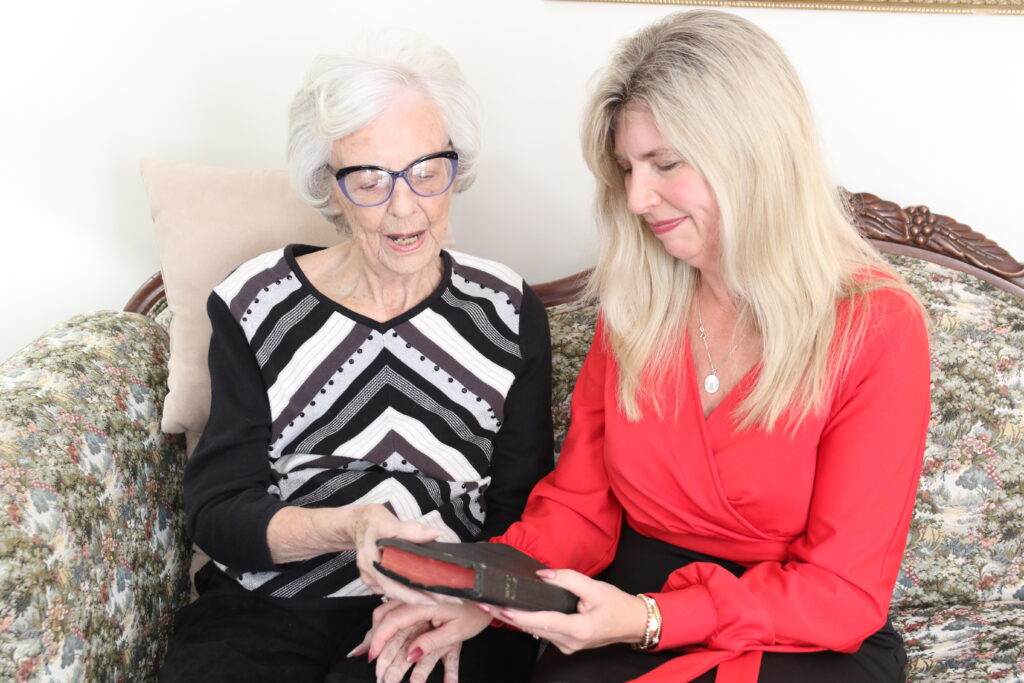
Lucille Hoback Boggess, sister of Raymond Hoback, presenting the Bible he carried on D-Day to April Cheek-Messier, NDDMF President & CEO
With the Bible, the family also donated Crayton’s letter and the telegram informing Raymond was missing in action, both original, to the Memorial’s collection. The three artifacts will be on exhibit together inside the Memorial’s Fleda A. Ring Education Quonset Hut and someday inside the Memorial’s planned education center. In the early years of the National D-Day Memorial Foundation, Lucille Hoback Boggess served on the Foundation’s Board of Directors.
